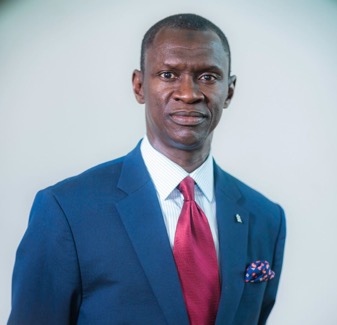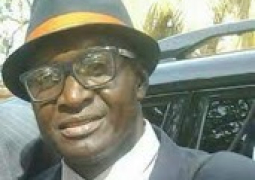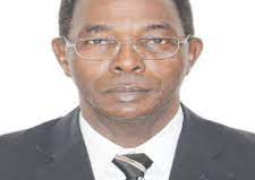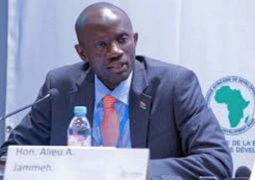
A Bar Association is not a creature of transient winds, nor is it a chorus to echo the clamour of partisan assemblies. It is the ancient guardian of justice, the noble steward of the law, and the conscience of a nation’s jurisprudence. To allow it to fall into the snares of political mimicry is to desecrate its very soul.
In every jurisdiction where liberty breathes, the Bar Association has stood as sentinel. Its task is neither to serve nor to flatter the ruling party, nor to lend itself as a weapon to the opposition. Rather, its role is higher i.e. to ensure that law remains law, and that justice is dispensed without fear or favour. As Lord Hewart, the Lord Chief Justice of England, immortalised in R v Sussex Justices, ex parte McCarthy, “justice should not only be done, but should manifestly and undoubtedly be seen to be done.” If the Bar is seen as partisan, its authority withers, and the public no longer believes in its impartiality.
A Bar Association is not a debating club of politicians, but the disciplined voice of the profession. Its resolutions carry the solemnity of centuries of tradition. Its duty is to the courts, to justice, and to the citizenrynot to political manifestos. The very independence of the Bar is a treasure purchased by generations of sacrifice. Sir Edward Coke, standing against the Crown in the early seventeenth century, declared “The King is under no man, but under God and the law.” His defiance was not for a party, but for the principle that the law must stand above all. When a Bar Association forgets this legacy and begins to parrot the doctrines of parties, it ceases to be the custodian of liberty. Instead, it becomes a noisy participant in the theatre of politicsan actor rather than an arbiter.
Lord Bingham, in his celebrated work The Rule of Law, reminded us that “The core of the rule of law is … that all persons and authorities within the state, whether public or private, should be bound by and entitled to the benefit of laws publicly made.” The Bar’s fidelity must therefore be to law, not to the fluctuating programmes of political power. The Bar is the voice of principle, not propaganda. It is the moral compass of the legal profession. It does not measure its relevance by the applause of politicians, but by the silent trust of the public it serves.
When a Bar Association tilts towards the ruling party, it becomes a handmaiden of power. Its declarations are read as echoes of the executive, and its silence as complicity. Equally, when it bends towards the opposition, it forfeits its moral authority, becoming little more than an extension of party machinery. In both cases, it ceases to be trusted. Sir Thomas Erskine, the great English advocate, once thundered“I will, for ever at all hazards, assert the dignity, independence, and integrity of the English Bar.” That independence is lost the moment the Bar attaches itself to a political wagon.
A partisan Bar cannot defend the weak, for its loyalties are already pledged. It cannot confront conflicts of interest or sharp practices, for its courage is compromised by allegiances. It cannot unify the profession, for its stance alienates those of contrary persuasion. Once a Bar becomes political, its decline is swift. History shows that when professional bodies are captured by partisan passions, their credibility collapses, and they are reduced to instruments of temporary utility. In countries where Bar Associations were co-opted by governments, they became extensions of state propaganda. In others, where they became vehicles of opposition, they turned into permanent critics without constructive authority. Both paths lead to irrelevance.
To preserve its honour, a Bar Association must resist the temptation of partisanship as Ulysses resisted the sirensby binding itself to the mast of principle and refusing to yield to alluring songs. Lord Mansfield declared“Let justice be done though the heavens fall.” He did not say, “Let justice be done if it pleases the government,” nor “if it serves the opposition.” Justice is higher than both. The Bar’s strength lies in its impartiality. It can call the government to account today, and the opposition tomorrow, without fear. Once it loses that neutrality, it loses the right to speak for the law. A politicised Bar is not feared by tyrants, for they know its denunciations are selective. It is not respected by citizens, for they know its silence is purchased.
Comparative experience teaches the same lesson. In jurisdictions where Bar Associations were silenced by co-optation, injustice flourished unchallenged, and lawyers became timid. In contrast, where Bars became the tools of opposition, governments dismissed them as mere antagonists, and their voices carried little weight. England itself provides an instructive lesson. The strength of the English Bar has been its ability to stand apart, delivering fearless opinions whether against monarchs, ministers, or mobs. When Sir William Garrow developed the adversarial system, his loyalty was not to any party, but to the accused and to justice. That legacy endures in the impartiality of the profession. When we recall the heroism of the Inns of Court in defending liberty, we do not ask whether they leaned Tory or Whig. We remember only that they leaned towards justice.
No discussion of the Bar’s independence and its resistance to political alignment is complete without addressing conflict of interestthat pernicious spectre which may subvert public trust even more swiftly than overt partisanship.
In English law, fiduciariesincluding barristers and solicitorsmust avoid conflicts of interest, whether actual or even potential, because the mere appearance of a conflict can damage confidence in the legal process. The House of Lords in Boardman v Phipps 1966 established that those who hold fiduciary duties must not place themselves in a position where their own interests (including profit) or loyalties might clash with the duties they owe.
For example, in Ex parte James (1803), Lord Eldon LC stressed the duty to avoid any overlap between a solicitor’s fiduciary role and his personal gainthe “no-conflict” rule is applied rigorously, even in the absence of fraud, once a conflict becomes possible. These doctrines underscore that the Bar must not align itself in ways that risk interests overlappingpolitical or otherwise.
In Greater China, there are explicit rules to guard against conflicts of interest. Under Article 39 of the PRC (People’s Republic of China) Lawyers Law, a lawyer may not act as agent for both parties in the same case, nor represent a client in legal matters where the lawyer or a close relative has interests in conflict. This legal prescription shows a statutory recognition that without separation of interest, fairness is at risk, and public faith in the legal profession falters.
Thus, if a Bar Association becomes aligned with a political party, or if its leaders hold political affiliations, or if party influence determines Bar policy or Bar resources, there arises a conflict, loyalty to law and justice is compromised by loyalty to party. Even when no law is broken, the profession risks violating the spirit of fiduciary dutyand suffers an injury to reputation.
A Bar Association is therefore called to a higher vocation. It is not the servant of fleeting politics but the steward of enduring justice. Politics divides the Bar unites. Parties change the Bar endures. Governments rise and fall, the Bar remains the constant custodian of the law. Lord Atkin, in Liversidge v. Anderson, stood alone against the executive’s overreach during wartime, insisting that “In this country, amid the clash of arms, the laws are not silent.” He spoke not for a party, but for the law. That is the higher calling of the Bar i.e. to speak when others are silent, to defend when others are afraid, to preserve when others are reckless. To exchange that mantle for the trinkets of political favour is to cheapen a noble inheritance.
Lawyers are officers of the court, not messengers of political parties. Their allegiance is to the law, not to party headquarters. If a Bar Association surrenders to political fashions, it becomes as transient as those fashions. But the law must be eternal, and so must the Bar. The Bar’s influence flows from its impartiality. Once that is lost, no rhetoric, no resolution, no manifesto can restore it. The English jurist Sir Matthew Hale counselled that “The office of the judge is to hear with patience, to answer with wisdom, to consider with sobriety, and to decide with impartiality.” If judges are bound so, then the Bar, as their partner, must also be impartial. To be impartial is not to be neutral in the face of injustice. It is to denounce injustice without regard to who commits it, and to defend justice without regard to who benefits from it.
To secure this mission, Bar Associations must codify safeguards against politicisation. Declarations of loyalty to any political body must be prohibited. Leadership of the Bar must be chosen for integrity and professional merit, not partisan affiliation. The Bar should speak only in defence of law, liberty, and professional ethics not in defence of manifestos or party manifest destiny. When governments abuse power, the Bar must condemn. When oppositions act recklessly, the Bar must caution. This balance preserves trust. Internal education of lawyers must stress the sacredness of impartiality, reminding young advocates that they are heirs to Coke, Denning, Atkin, and Erskine not to political strategists.
Codes of conduct must be enforced so that leaders do not drag the Bar into partisan disputes. The Bar must remain vigilant against infiltration by politicians seeking to use its prestige for partisan advantage. When lawyers become parliamentarians, they shed their robes. When they return, they must shed their politics. The Bar must insist on this separation. Its financial independence must also be protected, for dependency breeds compromise. International solidarity among Bars can serve as a safeguard, for a politicised Bar loses not only domestic credibility but international respect.
The glory of the Bar is that it has stood, through centuries, as the defender of liberty against both kings and mobs. To pollute that glory with the dust of party politics is to abandon its sacred temple. Lord Denning again reminds us that “Be ye ever so high, the law is above you.” The Bar must echo that to all, regardless of tribe or banner. The people must look upon the Bar as impartial guardian, not as partisan participant. If they see it as partisan, they will look elsewhere for justice, and the Bar will become irrelevant. The Bar must therefore guard its independence with jealousy, as a virgin guards her virtuenot for vanity, but for survival. Its influence rests not on the favour of parties but on the trust of the nation.
Let the Bar be the temple of justice, not the tent of politics. Let it be the voice of law, not the mouthpiece of manifestos. Let it be the conscience of the nation, not the chorus of the ruling or the opposition. The Bar must never mirror the ideals of a political party. To do so is to commit professional suicide. It must stand, as it always has, for the law, for justice, and for the rule of law. It must recall, with Erskine, that the independence of the Bar is its most sacred treasure. It must echo with Mansfield that justice must be done though the heavens fall. And it must live, always, by the creed of impartiality, so that when posterity looks back, it will not say “Here was a Bar that became a party,” but rather, “Here was a Bar that kept faith with the law.”
About the Author
Omar FaFa M’Bai is a Legal Practitioner, a governance advocate, and a parent. He writes regularly on institutional integrity, leadership, and education across Africa, Middle East, and Asia.





